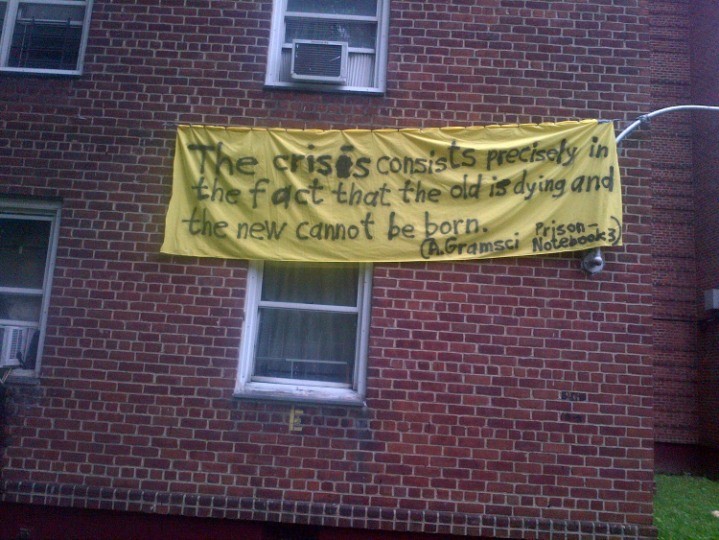1ST LECTURE AT THE GRAMSCI MONUMENT, THE BRONX, NYC WHAT IS PHILOSOPHY? MARCUS STEINWEG

Foto: Thomas Hirschhorn, Gramsci Monument, NYC
Let us define philosophy by two aspects: proflection and critique. Proflective is philosophy as a headlong dynamic aimed at the inconsistency value of its certainties. Thinking involves precipitancy and breathlessness. One could describe the self-defusing of philosophy in academia as a deceleration ritual dedicated to ensuring the development of something that one believes rightfully exists. However, explication and exegesis are only one aspect of philosophical practice. Genuine thinking begins with the subject choosing to extend itself to the inconsistency of self-explanatory facts, which implies questioning the idea of legitimacy. Thinking means leaving the territory of good reasons to risk, in suspending a scientifically legitimated factual romanticism together with its correlative logic of avoiding mistakes, the experience of moments of inconsistency. Thinking involves a progressive aspect. Since in thinking, the subject rushes towards the unknown, Badiou can claim that “making decisions of thought without turning back” is a key element in philosophical practice. The faintheartedness of all academicisms neutralised in a despondent belief in facts is characterised by weighing up consequences, the fearful look to the side, and a self-assurance based on the historical. However, philosophy marks the break with a dependence on facts. It is clear that this break is realised as a critique of established reality. Philosophy’s move to critique reality implies a turning away from reality. Turning away from and towards cooperate. Philosophy is neither realistic nor idealistic where it unmasks realism as factual obscurantism and idealism as a love of consistency (what is more durable, more eternal than ideas?). Philosophy as critique is directed against the temptation of choosing to confine thought in (‘critical’) pseudo-consistencies. It opens up the space of a universal inconsistency which indicates the contingency of the structure of being. For this reason, the critique of the existent involves affirming its contingency and transformability. This is the affirmationism inherent in philosophical critiques: not affirming the world as it is, but acknowledging that it is – as it is: ontologically inconsistent.
